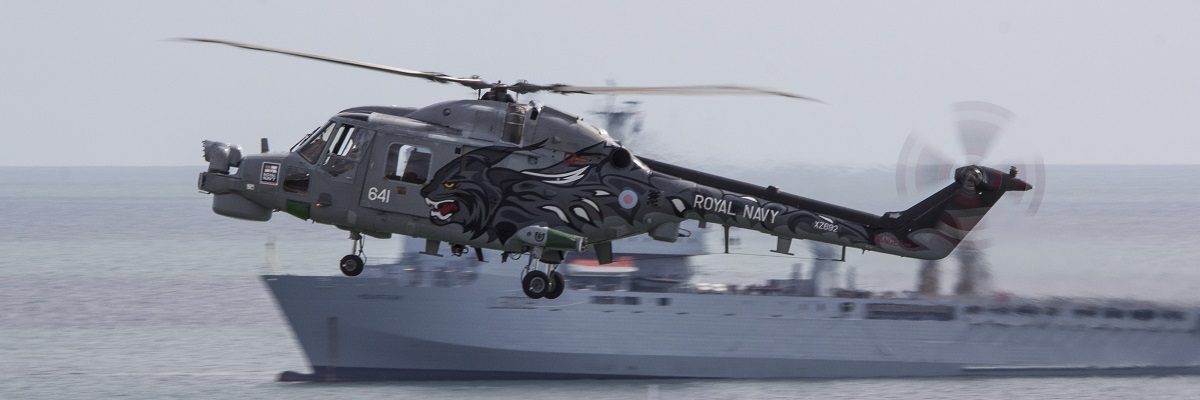Diplomacy
The UK’s new direction: Prioritising the Indo-Pacific

Image Source : Wikimedia Commons
Subscribe to our weekly newsletters for free
If you want to subscribe to World & New World Newsletter, please enter
your e-mail
Diplomacy

Image Source : Wikimedia Commons
First Published in: Sep.25,2023
Oct.20, 2023
The recent steps undertaken by the UK show the growing engagement with the Indo-Pacific and the clear intent to accelerate the same In March 2021, the United Kingdom (UK) released ‘The Integrated Review of Security, Defence, Development, and Foreign Policy’, outlining its vision, priorities, and strategies for ‘Global Britain in a Competitive Age.’ While it covered a broad range of areas aligned with its national objectives, two aspects stood out from a policy-reorientation perspective. One, a departure from its earlier approach of cordiality and accommodation with China; and two, its decision to deepen engagement with and play a more active role in the Indo-Pacific region. It included a separate section ‘The Indo-Pacific Tilt: A Framework’, which stressed that “we will be the European partner with the broadest and most integrated presence in the Indo-Pacific.” The ’tilt’ framework met with scepticism, in some cases with cynicism, because the UK had remained somewhat withdrawn, in general, and peripheral to the Indo-Pacific region, in particular, in the preceding few years. There were questions about the UK’s seriousness and headroom available for resource allocation to follow through with this new strategy. Notwithstanding, the UK government started to take new steps, as well as moving forward with some earlier initiatives related to the Indo-Pacific. The big announcement in September 2021 of AUKUS (Australia, the UK, and the US), an informal security alliance focused on the western Pacific, sent the clearest signal that the ‘tilt’ was more than just a strategy paper. It also indicated that the plans “… to enhance China facing capabilities to respond to systemic challenges it poses to our security, prosperity, and values…” would be realised through partnerships and alliances. The UK seeks to contribute to deterrence against China through the AUKUS, which has taken numerous steps in the last two years to expand defence collaboration in emerging technologies and industrial capabilities. The UK’s ‘tilt’ implementation challenges were compounded by the post-pandemic economic slowdown and the Russia-Ukraine war. At the same time, there were rapid changes in the global and regional strategic environment. For the UK, these implied the continued indispensability of the US, the criticality of the EU, and the importance of the Indo-Pacific. A revised strategy articulation was accordingly done through a comprehensive document titled ‘Integrated Review Refresh 2023: responding to a more contested and volatile world’, published in March 2023. It updated the broad strategic framework across geographies, sectors, and themes and was more explicit about the China challenge. With respect to the Indo-Pacific, it outlined the progress made since the announcement of the ‘tilt’ strategy. These included FTA agreements with Australia, Japan, the Republic of Korea, New Zealand, Singapore, and Vietnam. It highlighted deepening several bilateral relationships, partnership roadmaps with India and Indonesia, dialogue partner status with ASEAN, applying for joining the ASEAN regional forum and ADMM Plus, progressing negotiations to join the CP-TPP, deployments by the Royal Navy to the region, digital partnerships, and working together on green transitions. It pointed out that the Euro-Atlantic would continue to be the overriding priority, followed by the Indo-Pacific. Overall, the ‘Refresh’ document showed that the UK’s engagement with the Indo-Pacific was progressing well and that there was a clear intent to accelerate the same. The last two and a half years have firmly established the UK’s new direction, with emphasis on outcomes that are based on diplomatic and cooperative instruments. This trend is supported by a growing anti-China sentiment, increasing consensus for alignment with the Indo-Pacific framework, and a broader agreement on strengthening resilience against coercion and unforeseen events. A recent report by the UK House of Commons Foreign Affairs Committee, released on 30 August, has brought out a detailed assessment of the evolution and progress of the Indo-Pacific ‘tilt’ strategy. While recognising the steps taken towards implementation, it has made several recommendations. Some of these include a cross-government approach, focus on long-term objectives and outcomes, seeking to join the Quad, inviting Japan and the Republic of Korea to join AUKUS for ‘Strand-B’ activities of defence cooperation, pushing for Japan to eventually join AUKUS, campaigning to admit Taiwan to CP-TPP, dropping overcaution about offending the CCP over Taiwan, and releasing an unclassified version of its China strategy. This stems from a broad assessment that while Euro-Atlantic is the overriding priority, the long-term threat is from China. Another report on China by the Intelligence and Security Committee of the UK parliament, presented in July 2023, has highlighted that the Chinese approach to pursuing its global ambitions makes China a national security threat to the UK. The report covers diverse challenges emanating from espionage, interference, influence operations, and investments (the UK receives the highest FDI from China, compared to any other European country). It concludes that the response and preventive actions have been slow and inadequate, and recommends a proactive approach to counter China, with increased allocation of resources. These reports are indicative of increased political convergence on the need to take forward the plans for the Indo-Pacific and China with a sense of urgency. The coming months are likely to see increased momentum in the implementation of priorities indicated in the ‘Refresh’. In addition, delivering on the India-UK comprehensive strategic partnership and the 2030 Roadmap for India-UK future relations is being accorded high priority. It is important that this joint roadmap, the UK’s integrated review, and its plans for the Indo-Pacific are seen in sum and as mutually reinforcing. While attention is currently focused on the ongoing negotiations for the India-UK FTA—expected to come to fruition soon—it needs to be highlighted that there are many other important lines of action being pursued under the 2030 roadmap. The term ‘Tilt to the Indo-Pacific’ has also been a subject of debate since it was unveiled. To many, it seemed to suggest movement at the cost of some other important region. The ‘Refresh’ document refers to it but appears to somewhat deemphasise the term. The recent Foreign Affairs Committee report also recommends moving away from using it. While the use of ‘tilt’ in official language may fade away, the UK is likely to continue to lean heavily towards the Indo-Pacific. This priority can be expected to become more enduring, and increasingly credible in the coming years.
First published in :

Unlock articles by signing up or logging in.
Become a member for unrestricted reading!